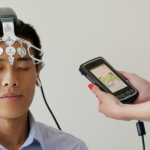Mental disorders known as psychotic disorders cause a person to become severely confused and lose contact with reality. A psychotic episode causes a person to lose their sense of reality and is characterized by hallucinations, delusions, strange behaviour, erratic speech, and incoherence.
This type of behaviour is frequently associated with schizophrenia. The good news is with the proper psychotic disorder treatment. You can end all disruptions caused by the condition in your life.
What Causes Psychotic Disorders?
Although we still don’t fully understand why psychotic diseases occur, we do not yet know their exact causes. However, there are several things that we think contribute to the emergence of psychotic illnesses, including:
● History of psychotic illnesses in the family (parents or siblings)
● Cognitive chemistry (It can be different in individuals experiencing schizophrenia, for example)
● Substance abuse (Use of cannabis has been shown by some studies to be linked to the development of schizophrenia)
● Stressful circumstances (unemployment, loss, financial problems, being homeless, abuse)
Diagnosis For Psychotic Disorders
A thorough mental health evaluation is required to diagnose a psychotic condition, which often includes a medical/family history, physical examination, and a psychiatrist interview.
These assist in determining the kind of psychos, underlying mental illness, or another disease that is causing the symptoms of psychotic disorder.
Assessments might have to last for several months since people suffering from psychotic disorder may not always be able to offer the crucial information for diagnosis during an initial evaluation.
As a result, the expert team can identify symptom patterns and devise the best possible treatment strategy.
Treatments For Psychotic Disorder
The nature and cause of the psychotic condition determine the course of treatment. Typical types of treatment for psychotic disorders include –
● Medications – Antipsychotic medications are frequently successful in treating symptoms like delusions and hallucinations. Antipsychotic therapy generally aims to control symptoms at the lowest dose achievable successfully.
Your doctor may experiment with new dosages, combinations, or drugs. Other treatments, such as antidepressants or anti-anxiety medications, may also be helpful, depending on the symptoms. After beginning a cure, symptoms may not start to improve for many weeks.
● Psychotherapy – Psychotherapy, often known as talk therapy, can help control symptoms and aid you in dealing with psychotic disorder in addition to medicine.
You can learn coping mechanisms for the stress and difficulties of living with the psychotic disorder by participating in psychotherapy, such as cognitive behavioural therapy, with the assistance of a qualified mental health professional.
Understanding psychotic disorder can help you manage symptoms, adhere to a treatment plan, and understand the condition. The treatment that offers family support and education could benefit you and your family.
People with a psychotic disorder can benefit significantly from the involvement and care of their family members. Additionally, family counselling can help your family resolve problems, enhance communication, and manage stress caused to you.
● Hospitalization – This could require Hospitalization at times of crisis or when there are many severe symptoms. By doing so, you can ensure that your loved one is safe and receiving the right amount of food, rest, and hygiene care.
Sometimes the safest and most effective option to swiftly manage symptoms is in a hospital environment. Although home care and partial Hospitalization are possibilities, it is typical to stabilize severe symptoms in the hospital first.
At Serenity Clinic, our board-certified and experienced professionals work to provide the best Psychosis treatments in Delhi NCR. We use the latest medical techniques to help you with psychotic disorders.








